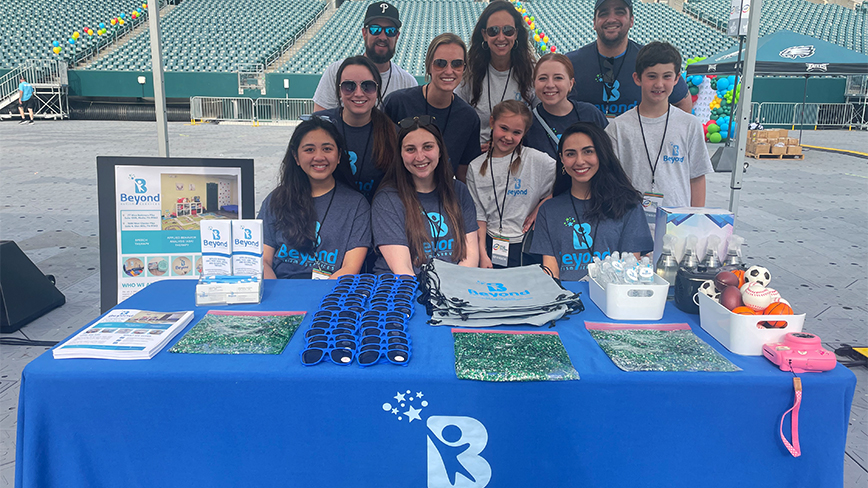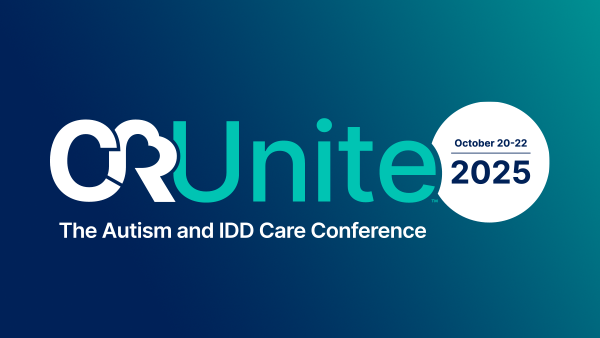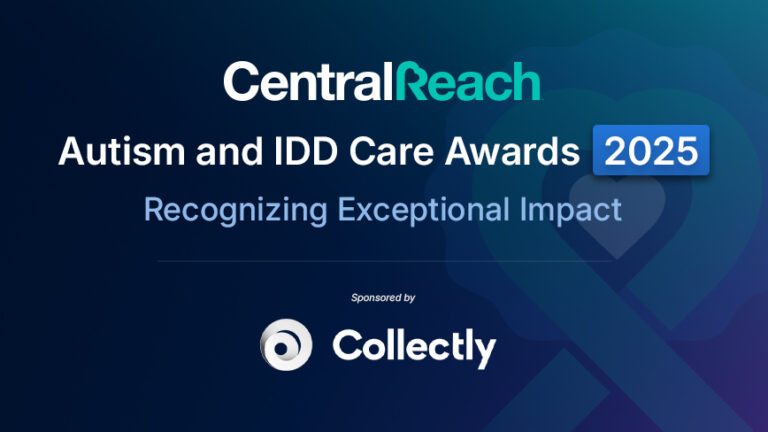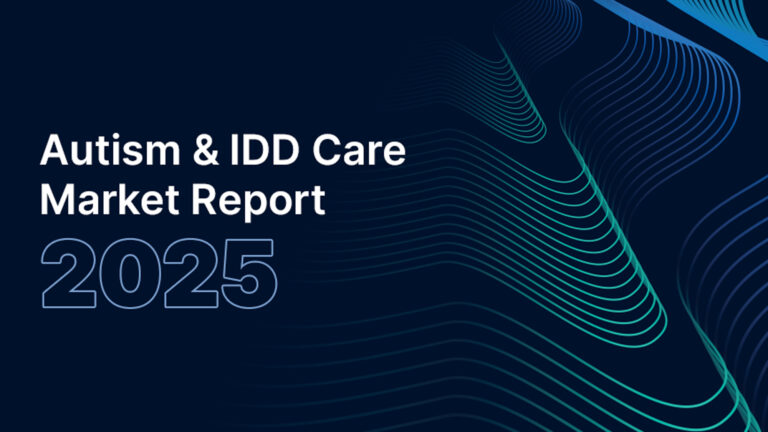This is an exciting time for behavior analysts when considering the scope of digital platforms designed to support clinical work in the Autism and IDD service space. The options for practice and clinical management are impressive, benefiting providers, clients, and their families. However, digital platforms designed to support parent and caregiver training have not been plentiful, nor has their content quality been as robust as many ABA professionals expect. Fortunately, the parent training space is beginning to change with new offerings like CR CareCompanion becoming available.
Research Support for Parent Training
When delivering ABA services within the context of families, so many of us intuitively know that integrating all members of the family results in better outcomes and better experiences. Research supports this intuition as well, with Messe et al. (2016) seeing improvements in both child skill acquisition and parent-child interactions. Allen et al. (2023) conducted an impressive randomized controlled trial (RCT) with children with a range of diagnoses and what is generally considered disruptive behavior; they found that child and parent follow-through increased, parent stress decreased, and both the child and parent reported better interpersonal communication.
Barriers to Parent Training
With the extensive benefits of caregiver training, it is no wonder several larger insurers require providers to include a parent training component in ABA therapy. However, parent training is a disproportionally underutilized service component compared to direct service with children. According to the Autism and IDD Care Market Report, providers are averaging just 24% utilization of authorized caregiver training hours. The reasons for this underutilization are multifaceted.
Common barriers to parent training include
- Appointment cancelations on both the parent and provider side
- Lack of staff competency & support in providing parent training
- An absence of systematic and comprehensive rubrics for what should be covered in parent training
Despite the challenges of integrating a holistic best practices approach to parent training into service offerings, the opportunity to do so may be more in reach now than at any other time.
Before going any further, let’s clarify several aspects of caregiver and parent training:
- Parents are parents, not therapists. Parents wear many hats and play the role of teacher, comforter, disciplinarian, advocate, and short-order cook, among all others. Efficacious parent training is designed around this understanding.
- Technology can enhance, supplement, and support – it cannot replace the work done by professionals. When considering how a digital platform can integrate into your service, offering one designed with this as a core principle is likely to be more seamlessly integrated.
- Parent training that fits into the already busy schedule of parents and providers is likely to increase the frequency with which this service offering can be fulfilled.
- When service offerings can combine synchronous and asynchronous components, scheduling and content interaction may be made more accessible and convenient. The COVID pandemic taught us many things, among which is how integrating digital platforms into our service delivery can mean many families can maintain the critical and vital care their child and family needs (Yi & Dixon, 2020).

Leveraging Digital Platforms for Parent Training
To this, we turn to how a digital platform can supplement your ABA and multi-discipline service delivery. At the most basic level, digital ABA platforms can assist and enhance accessibility and convenience, as well as, by extension, the evidence-based resources that help parents support their children with behavioral challenges. With the help of digital ABA platforms, parents can gain access to professional training, personalized interventions, and data-driven feedback that can help them better understand their child's behavior and how to respond effectively. Further, it can help parents more fully understand the treatment their child is receiving.
Here are some ways in which digital ABA platforms can support parent training:
- Online training lessons: Digital ABA platforms can offer online training lessons that provide parents with knowledge and skills related to ABA and how that relates to their activities as parents. When these lessons are delivered in relatively short step-by-step modules with embedded practice opportunities and “homework,” more structure can be afforded to parent training sessions with a provider. Further, data can be collected by the provider to supplement reporting requirements.
- Customizable interventions: A prepopulated library with expertly developed content is a great starting place. For many, it may be the best place to start delivering parent training an organization can be confident in. However, having the added benefit of individualizing this content to meet the demands of discerning parents and providers makes this offering even more amenable to the preferences of individual providers.
- Data-driven feedback: Beyond parent training, digital ABA platforms can provide parents with data-driven feedback on their efforts across content areas. The feedback can be based on the data collected from the child's behavior and delivered in real time. The feedback can help parents monitor their child's progress and adjust their interventions accordingly. The feedback can also be used to motivate parents and reinforce positive behaviors.
- Connected to support: Digital ABA platforms can offer a community of support for parents and providers. When a specific lesson or content area is not landing, the content can be modified. Further, an opportunity for program evaluation is presented, which can support further research efforts to ensure refined best practices. We no longer need to wait for considerable amounts of time for updated editions from authors and publishers. Digital platforms offer an opportunity to refine content quickly to meet the needs of parents & providers while also ensuring content evolves with up-to-date research and best practices.
- Remote consultation: Digital ABA platforms enable ABA providers to deliver remote consultation services to parents. These consultations can be provided by ABA professionals who offer guidance and advice to parents on supporting their child's behavior. Consultations can be delivered through video conferencing or messaging platforms, making it convenient for parents to access.
These are only a handful of benefits that digital support platforms can offer to parents, providers, and ultimately, the children, adolescents, and adults we serve. The early adoption of these platforms can come with both challenges and opportunities. It is an exciting opportunity for us to leverage technology platforms to enhance our clinical activities in a way that can make meaningful differences to those we are in service to. With contributions from users, we can continue to refine and make our platform more inclusive and accessible to do right by those we serve.
Improve Parent Training Outcomes with CR CareCompanion
CR CareCompanion unlocks the full potential of clinician-led, parent-reinforced care. Engage caregivers, accelerate learner progress, and support the whole family with on-the-go, self-paced training individualized to each family’s needs.

Timothy Fuller, Ph.D., BCBA-D
CentralReach, Senior Clinical Content Strategist
Timothy Fuller, Ph.D., BCBA-D is a Senior Clinical Content Strategist at CentralReach. Dr. Fuller brings his balanced experience and expertise in the theoretical, experimental, and applied aspects of behavior analysis to CentralReach. Dr. Fuller’s applied experience started with Early Intensive Behavioral Intervention (EIBI), where he worked with children with autism in an in-home ABA program. He expanded his applied experience to include Precision Teaching and parent, teacher, and staff training. Dr. Fuller also brings his expertise in contextual behavior science to CentralReach in an effort to support fellow scientist-practitioners in providing the very best of behavior analysis to those they serve.
He earned his B.A., MA., and Ph.D., at the University of Nevada, Reno. Dr. Fuller’s experimental work has primarily focused on derived relational responding and the role that context plays in human behavior. His theoretical foundations are rooted in a naturalistic, interbehavioral account of behavior.
References
Allen, K., Harrington, J., Quetsch, L., Masse, J., Cooke, C., & Paulson, J. (2023). Parent–Child Interaction Therapy for Children with Disruptive Behaviors and Autism: A Randomized Clinical Trial. Journal of Autism and Developmental Disorders, 53(1), 390-404.
Yi, Z., & Dixon, M. (2020). Developing and Enhancing Adherence to a Telehealth ABA Parent Training Curriculum for Caregivers of Children with Autism. Behavior Analysis in Practice, 14(1), 58-74.
Masse, J. J., McNeil, C. B., Wagner, S. and Quetsch, L. B. (2016). Examining the efficacy of parent-child interaction therapy with children on the autism spectrum. Journal of Child and Family Studies, 25, 2508-2525.





